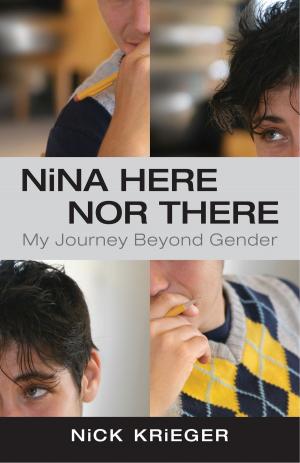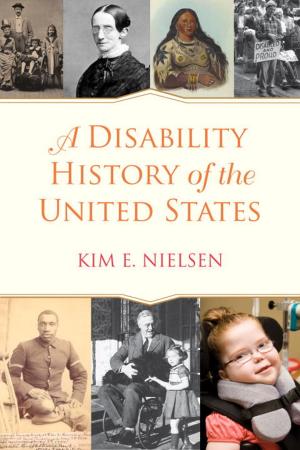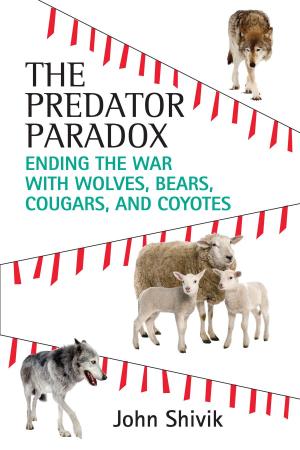The Lonely American
Drifting Apart in the Twenty-first Century
Nonfiction, Health & Well Being, Psychology, Social Psychology, Interpersonal Relations, Social & Cultural Studies, Social Science, Anthropology| Author: | Jacqueline Olds, MD, Richard S. Schwartz, MD | ISBN: | 9780807095966 |
| Publisher: | Beacon Press | Publication: | February 1, 2009 |
| Imprint: | Beacon Press | Language: | English |
| Author: | Jacqueline Olds, MD, Richard S. Schwartz, MD |
| ISBN: | 9780807095966 |
| Publisher: | Beacon Press |
| Publication: | February 1, 2009 |
| Imprint: | Beacon Press |
| Language: | English |
In today's world, it is more acceptable to be depressed than to be lonely-yet loneliness appears to be the inevitable byproduct of our frenetic contemporary lifestyle. According to the 2004 General Social Survey, one out of four Americans talked to no one about something of importance to them during the last six months. Another remarkable fact emerged from the 2000 U.S. Census: more people are living alone today than at any point in the country's history—fully 25 percent of households consist of one person only. In this crucial look at one of America's few remaining taboo subjects—loneliness—Drs. Jacqueline Olds and Richard S. Schwartz set out to understand the cultural imperatives, psychological dynamics, and physical mechanisms underlying social isolation.
In The Lonely American, cutting-edge research on the physiological and cognitive effects of social exclusion and emerging work in the neurobiology of attachment uncover startling, sobering ripple effects of loneliness in areas as varied as physical health, children's emotional problems, substance abuse, and even global warming. Surprising new studies tell a grim truth about social isolation: being disconnected diminishes happiness, health, and longevity; increases aggression; and correlates with increasing rates of violent crime. Loneliness doesn't apply simply to single people, either—today's busy parents "cocoon" themselves by devoting most of their non-work hours to children, leaving little time for friends, and other forms of social contact, and unhealthily relying on the marriage to fulfill all social needs.
As a core population of socially isolated individuals and families continues to balloon in size, it is more important than ever to understand the effects of a culture that idealizes busyness and self-reliance. It's time to bring loneliness—a very real and little-discussed social epidemic with frightening consequences-out into the open, and find a way to navigate the tension between freedom and connection in our lives.
In today's world, it is more acceptable to be depressed than to be lonely-yet loneliness appears to be the inevitable byproduct of our frenetic contemporary lifestyle. According to the 2004 General Social Survey, one out of four Americans talked to no one about something of importance to them during the last six months. Another remarkable fact emerged from the 2000 U.S. Census: more people are living alone today than at any point in the country's history—fully 25 percent of households consist of one person only. In this crucial look at one of America's few remaining taboo subjects—loneliness—Drs. Jacqueline Olds and Richard S. Schwartz set out to understand the cultural imperatives, psychological dynamics, and physical mechanisms underlying social isolation.
In The Lonely American, cutting-edge research on the physiological and cognitive effects of social exclusion and emerging work in the neurobiology of attachment uncover startling, sobering ripple effects of loneliness in areas as varied as physical health, children's emotional problems, substance abuse, and even global warming. Surprising new studies tell a grim truth about social isolation: being disconnected diminishes happiness, health, and longevity; increases aggression; and correlates with increasing rates of violent crime. Loneliness doesn't apply simply to single people, either—today's busy parents "cocoon" themselves by devoting most of their non-work hours to children, leaving little time for friends, and other forms of social contact, and unhealthily relying on the marriage to fulfill all social needs.
As a core population of socially isolated individuals and families continues to balloon in size, it is more important than ever to understand the effects of a culture that idealizes busyness and self-reliance. It's time to bring loneliness—a very real and little-discussed social epidemic with frightening consequences-out into the open, and find a way to navigate the tension between freedom and connection in our lives.















